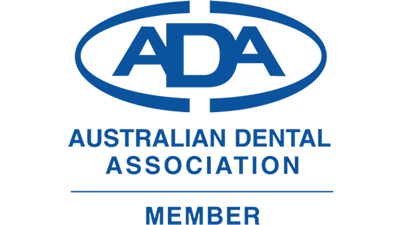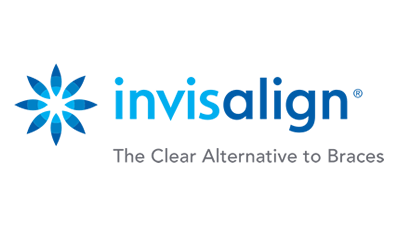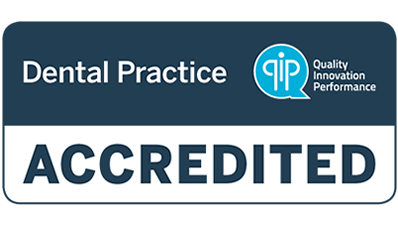Emergency Dentist Wahroonga
Need Emergency Dental Care in the Wahroonga Area?
Our friendly dentists in Hornsby are ready to accommodate emergency dental cases and get you out of pain and comfortable as fast as possible. Our experienced and friendly dentists are currently caring for our existing patients and also welcoming new patients.
Please call and talk to one of our friendly staff if you are experiencing:
- Toothache
- Pain
- Facial swelling
- An accident involving damage to your teeth or mouth
- Bleeding
- Swollen or sore gums
Our emergency dentists in Hornsby will assess your needs on the same day and will strive to provide immediate pain relief. Furthermore, our gentle dentists understand that some patients may feel anxious having dental treatment and are very experienced in managing and supporting patients who have anxious concerns.
Call our friendly staff to book your appointment or a consult today on 9477 1803.
As life often dictates, unexpected emergencies pop up when you least want them to!
Sudden toothaches can be very painful, sometimes even unbearable. They can hit you at the worst times like on the weekend, late at night, or during a vacation.
At Happy Smiles Dentist we offer a full range of Wahroonga emergency dentist options.
Let’s look at possible causes of a dental emergency.
EMERGENCY TOOTHACHE SYMPTOMS AND TOOTHPAIN
Call our office if you’re experiencing any of the following:
- Hot and extreme cold sensitivity on teeth
- Sensitivity to sweets
- Swelling of the gum around the tooth, or swelling that is starting to spread to the face
- Sharp or dull pain near your tooth
- Pain that radiates into the ear
- Lingering discomfort after eating or drinking
- Pain that awakens you from sleep
- Fever
- Sore or bleeding gums
- Gum boil, fistula or a pimple on your gums (You may or may not notice it draining fluid.)
- Bad taste in the mouth, which may be caused from an infected tooth.
On a more serious note, an infection that starts in your tooth can enter your bloodstream, leading to a number of other problems.
Please don’t wait too long to address something that seems as simple as a toothache! If you do experience severe swelling, high fever, or trouble swallowing, you may need immediate attention and should go to the nearest emergency room.
For all other dental emergencies, it’s best to seek out immediate dental care.
COMMON EMERGENCY TOOTHACHE CAUSES
If you notice any of the following, then you are at risk for developing a toothache at any time. By seeing us as soon as possible, we can make recommendations for treatment before it turns into something more severe and difficult to deal with.
- Broken and decayed teeth
- Gum recession (which can cause sensitivity)
- Heavy tartar and plaque build-up
- Bleeding gums
- Tooth mobility
- Gum disease
- Blunt force trauma from an accident or injury
WHICH TOOTHACHE PAIN RELIEVER WORKS BEST IN DENTAL EMERGENCY?
Since tooth pain is usually caused by inflammation, then medication with anti-inflammatory properties work best. These include ones that are readily available at any market like ibuprofen (Motrin) or naproxen sodium (Aleve.) Aspirin can also be considered and taken orally, but do not place it directly on the gums, because it can burn the tissue and result in more pain and discomfort.
Clove oil is another good toothache remedy that can help to ease dental pain and is available over the counter. Use a cotton ball to apply the clove oil to the tooth and along the gums around it. If there is a large hole in your tooth, you can place the small cotton ball in it as you make your way to our office. Clove oil has numbing properties that can provide you with temporary pain relief.
Some over the counter pain relieving gels contain benzocaine, which is another numbing agent. This works primarily on the gum rather than the tooth, but if used in excess it can cause further irritation and inflammation. If you decide to try this and it helps, please use in only in moderation until you can be seen for treatment.
HOW TO MANAGE A TOOTHACHE AT NIGHT
Many toothache sufferers tell us that the pain worsens at night. To relieve this situation, you could do one or more of the following:
- Brush and floss your teeth before bed to ensure that no food particles are left around the sore tooth.
- Mix a warm salt water solution and swish gently with it. This can actually be done several times a day and has better soothing qualities compared to the average mouthwash.
- Over the counter anti-inflammatory medication such as ibuprofen and naproxen sodium are great toothache pain relievers.
- Place a cold compress over the sore area on the outside of the cheek for about 15 minutes. A frozen bag of peas works well. This will help numb the area a bit. DO NOT USE A HOT COMPRESS, as heat can make the area swell.
- Sleep with your head elevated so that blood doesn’t rush to your head, causing pressure to build up, worsening the pain
TOOTHACHE PAINKILLERS AND OTHER MEDICATION
If your dental infection is severe, then over the counter anti-inflammatory pain medications will not suffice. You will need to see a dentist in order to be prescribed appropriate medication and treat the source of the pain. An antibiotic such as amoxicillin may be administered along with a pain reliever as necessary. Once the antibiotic takes effect, which may be a few days, the pain will subside in most cases.
If you are allergic to amoxicillin or penicillin, there are other antibiotics available that will target the bacteria caused by a toothache. These may include clindamycin (cleocin) or erythromycin (azithromycin). Please be sure to let us know if you are allergic to certain medications so we can provide you with the proper prescriptions.
HOW DO YOU GET RID OF A TOOTHACHE?
You won’t be able to cure a true toothache completely on your own. When the nerve inside your tooth has become infected, there are only one to two options to treat the problem. Our dentist can provide you with the proper diagnosis and treatment. In most cases, the recommendation will be something like a filling, crown, root canal, or deep scaling (for gum disease.)
As long as enough healthy tooth structure is present, we will try to preserve your natural tooth rather than extract it. For extensive decay or abscesses, a root canal may be best. During this procedure our dentist will remove the nerve tissue, disinfect the hollow canals, and place a sealer inside to prevent bacteria from re-entering the tooth. Proper removal of the nerve tissue will ensure the best outcome for a pain-free smile.
HAVE A TOOTHACHE? CALL OUR Wahroonga EMERGENCY DENTIST
We recommend seeing us for regular check-ups to reduce your risk of dental emergencies. Through frequent examinations and periodic X-rays, our Wahroonga dentist can screen for issues that may require attention as soon as possible, before they get worse or becomes painful.
If you are experiencing a dental emergency, we invite you to call our Wahroonga dental office. Home remedies and over the counter medication may help subside the pain and inflammation but it will repeatedly return unless cared for by a professional.





